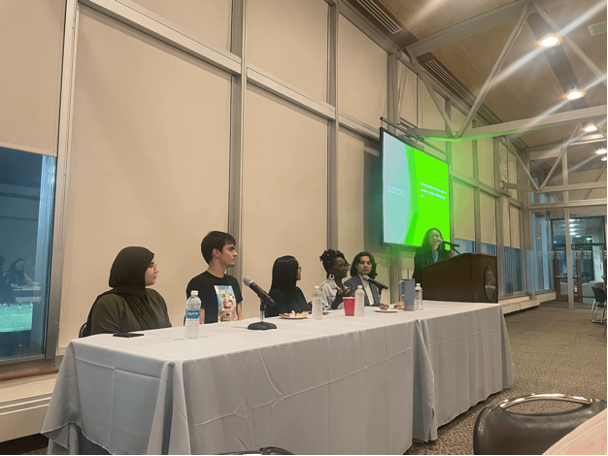Everyone knows a person who’s a badge bearing member of the language police. You know: those people who are so offended by errors in spelling and grammar that they make it their mission to confront linguistic ignorance whenever and wherever they find it. “This isn’t taking literally forever you thickheaded plebian. I believe you meant to say figuratively.” Commonly referred to as a “grammar nazi,” this type of person seems to feel impugned on a moral level when language is misused.
There’s absolutely nothing wrong with speaking and writing properly, and certainly not with understanding words and language on a precise level. A detailed comprehension of the way we communicate is laudable, and it is my hope that people can find expanding their grasp of language rewarding and fruitful. However, the path of the grammar nazi is neither of those things.
The term “grammar nazi,” though containing the word “grammar,” also encompasses people who get prickly over improper syntax and spelling. In further qualification of the term, a grammar nazi doesn’t offer a friendly suggestion on how to improve, but instead mocks or ridicules the person who made an error.
Grammar nazis like to think of themselves as defenders of proper language from unrefined colloquy, but I think their hyper-critical approach is seriously misguided. True masters of the English language (Oscar Wilde, William Shakespeare, Mark Twain, etc.) did more than just enforce properness. They explored words, syntax and grammatical structures. They underpinned all of the technicalities with strong and beautiful styles, and didn’t simply harp on other people’s use of words.
Most importantly, they had a genuine love of language. There is neither love nor value to be found in standing in a grocery store whining, “Ugh, it’s not fifteen items or less; it’s fifteen items or fewer!” How finicky and insecure does a person have to be to derive pleasure from this kind of nitpicking?
What’s probably the most frustrating thing about your garden variety language policing is that a lot of the time the criticisms aren’t even valid. Take one of the most common nitpicks: literally being used when a literal meaning isn’t implied. This is what is known as an “auto-antonym” and it’s a perfectly valid definitional structure in English. Auto-antonyms are words whose meanings can be their own opposites depending on context. For example, the word “off” can be used to refer to something being deactivated (“I turned off the light”) or to something being activated (“My alarm went off”). The phrase “to fight with” is also auto-antonymic. It can mean to fight against someone (“I fought with my neighbor because his dog peed on my bushes”) or to fight alongside someone (“I fought with my neighbor in the Korean War”). Literally, likewise, can mean word for word and not as a metaphor (“I literally dropped a pretzel on the floor; there it is”) or as an intensifier for figurative statements (“I literally died when I heard that So-and-So is going out with What’s-his-Face”).
The problem is that grammar nazis are content to criticize things that seem improper without understanding the rules and structures of language that lie underneath. But even if a grammar nazi was comprehensively versed in how to navigate every facet of the English language (an impossible thing), it still wouldn’t justify their behavior. There is no legitimate reason to lord your knowledge of language over others to establish your superiority. Correcting others just to elevate your own self at the expense of another person is pedantic, shallow and not least of all extremely irritating.
Does it matter if a person includes a “like” in their sentence while they gather their thoughts? It’s just a filler word like “uh,” “er” or “um.” These pauses (part of a broader category called speech disfluency) are essential to human speech; without that disfluency people would sound robotic. It’s shameful that all these wonderful and textured features of language come under fire by self-appointed grammar gestapo. Don’t sulkily tear language apart, contribute to it!
If you are a grammar nazi, I sincerely hope you can recover. I literally would do anything to, like, let you just relax bro. For real. like, their isn’t any valid reason your upset. Alright that “their” and “your” were pretty terrible, but you get the picture.
As for the rest of you: Use slang! Play fast and loose with syntax and words in informal settings! Experiment! But most of all: enjoy watching grammar nazis around you squirm and cringe as they are forced to confront the richness of language!







































































































